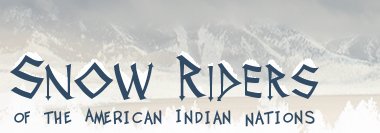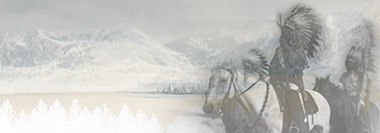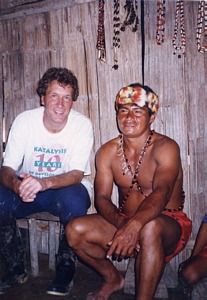 |
 |
|
"SUSTAINABILTY: LESSONS FROM INDIGENOUS WISDOM" John Perkins, CEO, Dream Change Coalition Keynote Speech to the World Bank May 2, 2002 Corporate Sustainability Conference-Washington, D.C. This talk may challenge your thinking. I hope it will inspire you -- as the World Bank has both challenged and inspired me for much of my life. When I was a young boy during the 1950s I grew up in the shadow of the hotel in Bretton Woods NH where the World Bank was conceived. My dad who fought in World War II was deeply moved by its goal of reconstructing a devastated Europe. He used to take me by that hotel. Later, I attended business school in Boston. One of the professors I most respected was a consultant to the World Bank. He shared with us case studies and personal experiences he had in Africa and Asia. I wanted to follow in his footsteps. On graduating in 1968 I joined the Peace Corps. During 8 weeks of training in Southern California, I learned a little Spanish and, because of my business education, was trained as a specialist in credit and saving cooperatives. Then the Peace Corps sent me into the Ecuadorian Amazon, deep into Shuar Territory. In those days the Shuar were famous for shrinking the heads of their enemies. As I struggled to make my way into the rainforest I discovered something that really shook my confidence: although I spoke very poor Spanish, most Shuar did not speak it at all. Finally I arrived at the community where I wa supposed to spend the next two years. I announced my intent to helpthem form credit and savings co-ops -- and discovered something even more shocking: the people who lived there had no money! How could I possibly carry out my assignment? We Peace Corps volunteers had been told that we would help poor people around the globe change their lives. But I quickly learned that I had absolutely nothing to offer. Despite all my years of education, there wasn't anything in my background that could possibly help them. On the other hand, they had a great deal to teach me. Their knowledge of the forests, their attitude toward life, ability to live in the present, to enjoy their families and the rivers, the plants and animals, their ecstatic way of being were the very things that my culture lacked and sorely needed. The Shuar, perhaps more that anything else, taught me the importance of seeing and feeling relationships -- mine to the people, plants, and animals around me, them to each other -- the interrelated aspects of all our lives. I ended up extending my Peace Corps stay for three years -- the longest time allowed for a volunteer in those days.  Afterwards, I returned to the United States and did what I had been trained to do -- I became and economic and management consultant, specializing in international development. For the next ten years I worked all over the world, assembling a staff of nearly 50 specialists -- economists, sociologists, agronomists, planners, econometricians and financial analysts. Much of our work was for the World Bank and affiliated organizations. Every chance I had I took time off and visited local indigenous communities. I always found that they had things to teach me, including techniques
that allowed me to visualize what I really wanted in life and focus my energies in ways that enabled me to achieve my goals. Afterwards, I returned to the United States and did what I had been trained to do -- I became and economic and management consultant, specializing in international development. For the next ten years I worked all over the world, assembling a staff of nearly 50 specialists -- economists, sociologists, agronomists, planners, econometricians and financial analysts. Much of our work was for the World Bank and affiliated organizations. Every chance I had I took time off and visited local indigenous communities. I always found that they had things to teach me, including techniques
that allowed me to visualize what I really wanted in life and focus my energies in ways that enabled me to achieve my goals.In 1981 I left consulting and founded a company that developed and operated environmentally sensitive alternative energy projects. It was a high risk/high gain enterprise and we were one of the few successful companies. I must say that a primary reason for our success was that we employed many of the techniques I had learned from indigenous people -- those in the Amazon, as well as in the deserts of the Middle East, and the remote islands of Indonesia. These techniques are described in some of my books (Shapeshifting, The World Is As You Dream It, Psychonavigation, and The Stress-Free Habit). I sold that energy company in 1990 and decided to return to the Amazon. The rainforests were threatened. The community where I had lived deep in the jungle now had a road through it and only a few scattered trees remained. I took a small plane and dugout canoes further into the rainforests and finally reached a place where members of the Shuar culture -- those who had made a conscious decision to maintain their traditions -- now lived. I told them that they had changed me, saved my life back in the 1960s, and now I wanted to help them save their forests and their culture. The Shuar expressed appreciation for what I had in mind, but they also informed me that they were doing nothing to destroy the forests. "It's your people," they said. "Your oil and lumber companies and your cattle ranches tear down these forests. The world is as you dream it and your people have had a dream of big buildings, many cars and lots of industry. Now you realize that that dream is a nightmare. If you want to shapeshift this dream, go back to your people and change them." Once again I learned that the indigenous people had so much to teach me -- us. I returned home and formed Dream Change Coalition (DCC), a nonprofit organization dedicated to changing our dream of the world. Yajanua is one of our DCC teachers. A Shuar woman who also graduated from the University of Quito and traveled to the United States and Europe, she knows both worlds. She tells what she calls the "Parallel Development" story. "You people," she says, " believe that your civilization has developed for thousands of years, that you can look back to ancient cultures in Asia and the Middle East and trace this development through Europe and into the United States. You say you've made great progress and this is true in many ways. You also look at us, the Shuar and other indigenous people, and you say that we haven't developed, that we've been static, that our lives are 'primitive'. But it simply isn't true. We've always developed. We've cultivated forest plants, learned new ways to fish and hunt; our shamans are constantly understanding new things about healing, journeying, and using herbal remedies. We've developed too -- but the difference is in how it happened. Our way has always! taken into account all other live forms and the lives of our children's children. For us the word 'progress' does not apply if it threatens other species or could possibly harm future generations. How could that be progress? So we've developed in parallel to you -- only we've done it very, very differently." (Spirit of the Shuar, pp. 154-155) I often think about these words of Yajanua. I think about them in the context of the work I used to do for the World Bank. We frequently were called upon to make 25-year forecasts of a country's economic growth. For example, we would evaluate the impact of a World Bank loan of a few hundred million dollars to Iran or Panama. How would investing that in the energy sector versus the transportation sector impact Gross National Product over the next two and a half decades? What would a road deep into the rainforests accomplish compared to a hydroelectric dam? I was often struck by the fact that although we were trying to forecast the next 25 years, we personally cared only about the next few months, the upcoming quarterly report. We wanted to know whether or not the project would be approved. Bonuses and promotions depended on those decisions. It has been 25 years since I made many of those forecasts. I have no idea how accurate they turned out to be. I doubt anyone does.So I find myself wondering: In a world where things are measured by short-term goals, how do we deal with future generations? What can we learn from Yajanua and cultures that have survived on this planet for thousands of years? Post WWII economics worked successfully for many years. Not only was Europe reconstructed; improvements were made around the globe. We truly live in a different world and are confronted by challenges that could never have been imagined by those men and women who met at Bretton Woods. Until very recently we were convinced that things would just keep getting better. The idea that the human conquest of the world could be anything but beneficial was unthinkable. But now irrefutable evidence tells us differently. We see it in climate change, El Ninos, the ozone layer, overpopulation, species extinctions -- there are signs wherever we look that we are on a path toward self-destruction. Yet we are still stuck in the patterns of our past success In his book A Language Older than Words, philosopher Derrick Jensen draws upon the work of psychologist Erich Fromm and anthropologist Ruth Benedict to classify cultures into three general categories: 1. Life Affirmative -- represented by the Zuni, Hopis, Mbutus, U'wa, these are characterized by a minimum amount of hostility and aggression toward people, animals, and nature and a dedication to looking out for the long-term good of the community. 2. Nondestructive Aggressive -- the Samoans, Crows, Shuar and other cultures that exhibit aggression toward certain people ("enemies") along with a determination not to destroy the natural world which they understand to be essential to their well-being and which they usually hold as sacred. 3. Destructive -- the Aztecs and all the "classical" cultures of Persia, China Greece, Rome, the colonial powers of Europe, and -- yes -- us; these are characterized by interpersonal violence, a philosophy that they have a God-given right to exploit everything, and a system that emphasizes the short-term and the individual, often at the expense of community. I ask you: Which of these is sustainable? Which is not? Today, for the first time, we have arrived at a point in history where a Destructive culture controls the entire planet. It is not a country, but rather a culture that reaches across national borders. And now this culture has undeniable evidence that its system is no longer working, that if we do not change we are doomed. So what exactly are the lessons to be gained from indigenous wisdom? Attitudes toward life, ecology, and relatonships and techniques for visualizing like the ones I learned during my Peace Corps days. Certainly. The concept that the world is as we dream it and that what we don't like, we can re-dream? Absolutely. Ideas about looking out for the long-term, setting as a priority a better world for future generations? Of course. All these are important, but I sometimes believe that the most important to us right now, at this very critical time in human history, is a lesson that was graphically demonstrated to me about 10 years ago. I had taken my publisher to the Shuar. Two of their young men escorted us on a three-day hike to their sacred waterfall. On the way back, about an hour before re-entering the community, they stopped and bent down beside the trail. "This bush is sick," one of then said, pointing at a tiny plant that was barely visible. "It was healthy three days ago when we left here." They explained that they would have to describe it to their elders because the plant might carry a message. That night the elders decided that the trail we had taken should be abandoned, allowed to fade back into the forest. The plant had spoken. The Shuar had listened. At a recent meeting of Shuar elders we described some of the things happening on our planet. The melting of glaciers and polar ice. Forest fires in jungles that have never experienced them before. The hole in the Ozone layer. Rampant drug addiction and family violence. After we finished first one and then another of those elders stood up to tell us we had better listen, we had better change. World War II was the result of human decisions and actions; it destroyed cities, nations, people and forests. It was also a message. We listened. Among other things we created this organization, the World Bank. And we succeeded magnificently. We have not only survived; we have thrived. Now we are confronted by a new form of devastation. Like WWII it is the result of human decisions and actions and it threatens our very survival as a species. It too is a message. Never before has an organization like this, the World Bank, been so needed. Never before have people like you been so essential. It is time to listen and to act, to invoke the spirits of all those great minds and courageous people who met in Bretton Woods and who walked these halls before you. I've reached that point in this talk when it is time to bring things to a close. Before I do I'd like to summarize five of these Lessons from Indigenous Cultures in a way that, I hope, encourages you to use them on a personal basis: 1. Help future generations. In evaluating projects, always ask: Does it benefit the next several generations? Remember that future generations of people are dependent on the well being of future generations of plants and animals, all of nature. 2. Protect every culture. During the 20th century, in the Amazon alone over 100 indigenous cultures disappeared. It happened to many more around the planet. With them we not only lost human lives; we also lost libraries of unwritten books about the human experience, untold volumes of wisdom. Commit yourself to stopping this process. Instead seek out ways to help these cultures share their wisdom with the rest of us. 3. Ensure that all World Bank projects have a net environmental benefit. Make this a condition before you approve any project. 4. Explore and feel relationships. Understand the importance of relating to family, people, trees and animals. When you look at a table, relate to the wood that went into making it, and to the people who brought it to you. When you work in a country, relate to its people, to its natural world and the problems being faced by both. Your true work is about relationship, not statistics and economics. 5. Take action in your community. Bring the idea of a sustainable world to the area where you currently live. Get involved in local projects that protect natural areas, watersheds, endangered species, or threatened cultures. Volunteer to speak at schools. Spread the word and set an example. You can make a huge difference. As can this institution. You have the mandate and the capabilities to lead the world back from the edge of a precipice. Bretton Woods gave you the mandate. You have developed the capabilities during the decades since. As an organization you encompass the planet. You understand how to disseminate information and knowledge and how to distribute resources and wealth. You know how to change the world. Change this world -- our only home -- in a way that ensures our survival. Not just a probability of survival, but a guarantee of it. And do more than that. Take actions now -- right now -- that will make children from all over the earth proud of what happened today, in this place, proud of you and the actions you take on their behalves. Photo: John Perkins and Martin a Shuar Warrior For more information visit his websites: Dream Change and John Perkins JOHN PERKINS, a businessman and environmental philosopher, founded Dream Change Coalition, a nonprofit organization, and created the Pollution Offset Lease for Earth (POLE) program, enabling corporations to offset the greenhouse gases they produce by leasing CO2 absorbing rain forests. He draws extensively from three decades as a consultant to multi-national institutions and Fortune 500 companies and his experiences as CEO of a U.S. energy company that produced electricity with environmentally beneficial technologies. His acclaimed books -- published in many languages -- include: Spirit of the Shuar Shapeshifting The World Is As You Dream It Psychonavigation The Stress-Free Habit and the NY Times bestseller CONFESSIONS OF AN ECONOMIC HIT MAN (nominated for the prestigious Quill Award. |
Home | Photo Gallery | Nations/Ski Areas Mapped by State | Nations Directory | Ski Areas Directory | Events | Tributes | Snow/Earth Care
Entry Page | NA Olympic Bid | Shining Moments | Tribal Gifts | Miracles | Donations | Nations Bios | Site Credits | Site Map | Contact Us
Entry Page | NA Olympic Bid | Shining Moments | Tribal Gifts | Miracles | Donations | Nations Bios | Site Credits | Site Map | Contact Us
© Snow Riders of the American Indian Nations/ Native Voices. All Rights Reserved. This site is a world-wide collaboration.